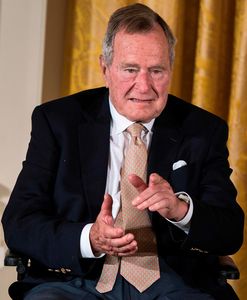Narendra Modi’s tweet team would have struggled to compose a condolence message over the death of George Bush Sr. “George H.W. Bush was passionate about strong relations between India and USA,” they tweeted finally. “His presence will be sorely missed.” Prim and perfunctory. Hardly passionate.
Blame them not. There wasn’t much for any Indian to say anything about the elder Bush. He was neither our foe like Richard Nixon, nor our friend like Bill Clinton or George Bush Jr. He had dropped in Delhi once as Ron Reagan’s veep, and had to spend his four days sorting out the abduction of an American couple in Sri Lanka by Tamil militants. Indira Gandhi got them alive, and he was grateful.
As president, he did not bother India, nor did he bother about India. In his memoirs co-authored with Brent Scowcroft, India figures only once—in a remark from Mikhail Gorbachev. He used to say those sweet nothings—India and Pakistan should improve ties, live in peace, blah, blah, blah—the kind of goody-goody statements that diplomats have coined as protocol pastimes.
India was plagued by political chaos and economic bankruptcy during his presidency. During those four years in the White House, we had four PMs in 7 Race Course Road, and we were staying alive by pawning our reserve gold in the Bank of England.
Bush’s splendid indifference helped us. It gave us the time and confidence to sort out our problems on our own. By the time he had sorted out the Middle East, ended the Cold War, and taken charge of the unipolar world, we had learnt to live without socialist ideas or Soviet aid.
Like Winston Churchill, Bush won a war, but lost the next polls. The likeness ends there. Churchill was flamboyant, exuberant and had a vision about everything. Bush was quiet, restrained and was at a loss about “that thing called vision”.
Perhaps he did have a vision, but didn’t know how to put it in poetic prose. Look at his conduct during his finest hour. After liberating Kuwait from Saddam Hussein, he could have sent his tanks racing into Iraq, and effected a regime change in Baghdad. He didn’t. He had drawn “a line in the sand”, and he would respect it, as would others. He knew where to end the victory run, a rare quality seen among war heroes.
Perhaps he was restrained by history. Three quarters of a century earlier, a British commander from India had landed at Basra with a limited war aim, but was tempted by Arabian nightly dreams about Baghdad. That adventure ended in the messiest ‘mespot’ that the British Empire had ever got into, and the horrible slaughter of thousands of Indian troops. The India Gate in Delhi stands as a testimony to that tragedy.
Baghdad was tempting; Bush knew to resist it. But his brat of a son made the mistake that he had avoided. Two presidential terms later, the younger Bush sent thousands of Connecticut Yankees into Haroun al Rashid’s court, effected a regime change, and left the Middle East more chaotic than it ever was since the Crusades.
Tailpiece: Bush’s self-restraint was evident early into the Reagan regime. He was in Texas when Reagan was shot and wounded in Washington. When Bush’s plane landed in Washington, his aides advised him to take a helicopter to the White House to show the world that everything, including the nuclear button, was under control. Bush rejected the idea, saying, “Only the President lands on the South Lawn.”
That was in contrast with how Secretary of State Alexander Haig had behaved. As the President was being carried to hospital, Haig declared: “I am in control here.”
A year later he lost the job.
prasannan@theweek.in


